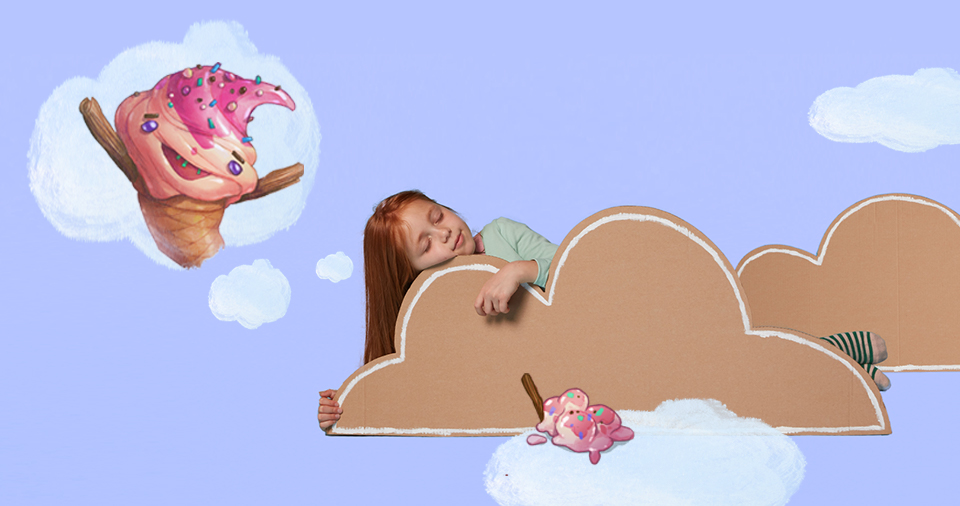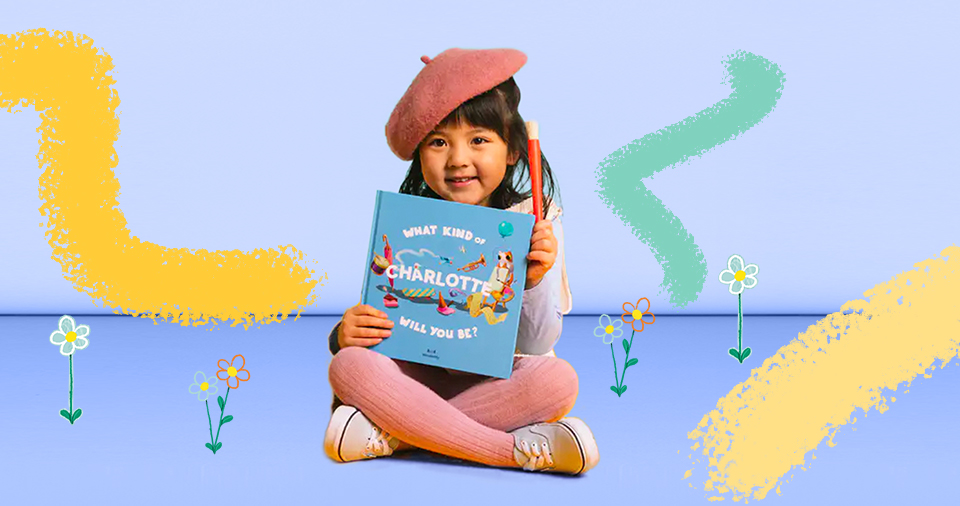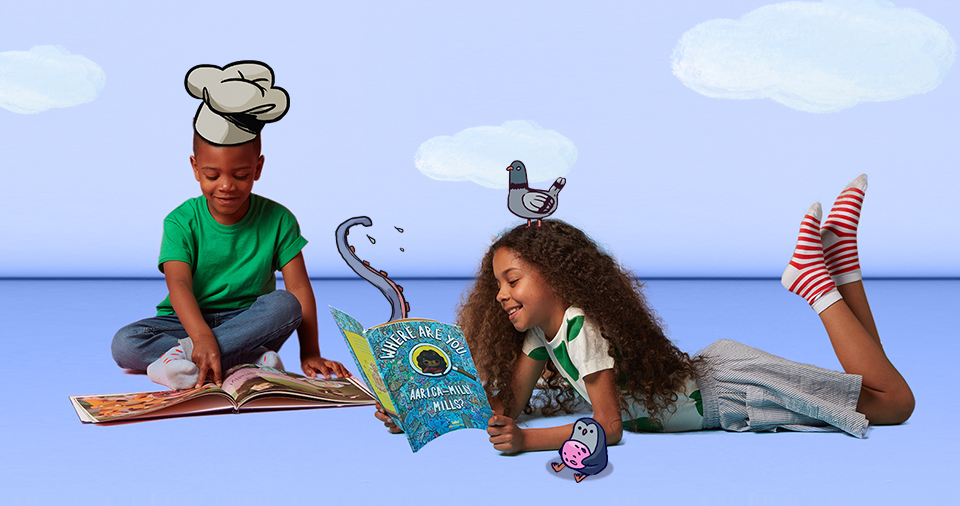At Wonderbly, we believe there’s nothing more magical than a child’s imagination. It is delightful, limitless, and incredibly precious. To a child, a box isn’t merely a box. Oh no! It’s an intergalactic spaceship, or a pirate ship sailing the high seas, or a state-of-the-art television studio.
This belief in the power of imagination is embedded in all our personalized books. By turning a child into the hero of their own story, we can help even the most reluctant readers engage with new worlds and new characters. Stories are key to helping children develop a healthy inner world. But so is another thing: boredom.
What if we’re simply giving our kids too much to do?
What if keeping our kids constantly entertained is stopping them from experiencing the true joys and rewards of boredom? We spoke to child education specialist Dr. Nermeen Dashoush (from online learning platform MarcoPolo World School) about why doing nothing is key to developing our kids’ creativity, imagination, and independence.
(Psst! Fancy 7-days free access to MarcoPolo World School’s award-winning home learning platform plus 30% off subscriptions? Sign up here.)

The importance of boredom for children, by Dr. Nermeen Dashoush
I have given a lot of advice to parents during my career as a New York City classroom teacher and professor of early childhood education. About five days into the COVID-19 quarantine, I found myself answering work emails with one hand, holding a baby with the other, and pointing to a map with my toe while trying to teach my other child geography. It was a defining moment for me as I realized how exhausted I was, how unsustainable this was, and how unhealthy this was for all persons involved. From that moment, I realized more parents needed real-world advice that was also research-proven and practical. My advice: “It’s OK to do nothing sometimes.”
So what does “doing nothing” mean exactly?
As parents, we naturally want to give our children experiences that help them develop their interests and skills. If we have the ability and means to do so, we sign up for swimming, dance, piano, voice, chess, baseball, etc. We schedule playdates and plan every hour of the weekend. Family schedules are so packed that questions like “What are we doing next?” are commonly heard because kids are anticipating the next planned activity. But there is also value in unplanned time. In those moments, children aren’t being directed and are given the responsibility to figure it out themselves.
Doing nothing is breaking away from the notion that you need to schedule every second of the day for your child. Most likely, you are not a teacher, and even if you are, teaching your child at home is very different from teaching in a school setting. Academically, what is going to make a difference in the long run, is that you preserve their love of learning. The anxiety that comes from being overscheduled and the pressure to finish every single task, may leave children associating these negative feelings with school and learning.
It’s healthy to have significant gaps in the day instead of moving from one thing to another. Focus more on setting up a safe environment that promotes opportunities for exploration (without your participation) and the idea that preserving the long-term love of learning will beat filling out all those worksheets any day.

Your kids will be bored. For now…
Yes, they will get bored. That is OK. It might be a sign of initial withdrawal from their constant need for you to provide them with something to do. Boredom is healthy and a natural transitional phase that everybody needs to experience. It’s a reality check that life will not be full of playdates and one scheduled event after another. However, if you allow these moments to play out, your child will eventually look for things to do and their imaginations will ignite. Early childhood experts agree that allowing for these unscheduled/ unstructured periods of time promotes creativity, imagination, and independence.
We all experience boredom as adults, and we have to prepare children to experience it too. We are setting them up for disappointment and failing to equip them with life skills if they are expecting a life with one exciting planned event after another. When you allow for those gaps, those unscheduled moments, then something great happens… well, eventually. At first, you might be met with frustration, disappointment, whining, and complaints, all of which are signs that they were accustomed to having you serve as their constant form of entertainment. However, eventually, something great happens; a bored mind looks for possibilities and explores the environment in new ways. seeking things of interest. Boredom forests the imagination, creativity, and resourcefulness.

Boredom is the portal to possibility
During these times of “boredom,” what kids genuinely learn to discover is themselves. They learn about themselves, their interests, what they really want to do. They might even revisit toys and books from a different perspective. Boredom has been proven to activate their imagination as children learn to make use of what they have to entertain themselves. It is in those moments that they decide “What’s next?” kids think about what they want and the possibilities of what they have.
Boredom is not only natural and healthy. It is a fundamental part of what it means to be a child. So my advice? Let the kids be bored.
—
About Nermeen
Nermeen Dashoush, PhD is a mother of two and a Clinical Assistant Professor of Early Childhood Education at Boston University. Nermeen was a classroom teacher for over 10 years in NYC. Nermeen serves as a curriculum developer for MarcoPolo Learning and helped create World School, an Emmy nominated digital learning tool for children.
About MarcoPolo Learning
MarcoPolo World School is the STEAM+ Literacy digital learning platform with more than 500 premium video lessons and 3,000 interactive learning activities designed to nurture curiosity about the natural world. Get 7-days free access and 30% off subscriptions here.
About Wonderbly
Wonderbly personalized children’s books allow kids to explore topics like kindness, empathy, and bravery in an immersive storytelling experience. When kids see themselves in a book, it has a profound effect on their engagement with reading and opens them up to the world and people around them.
